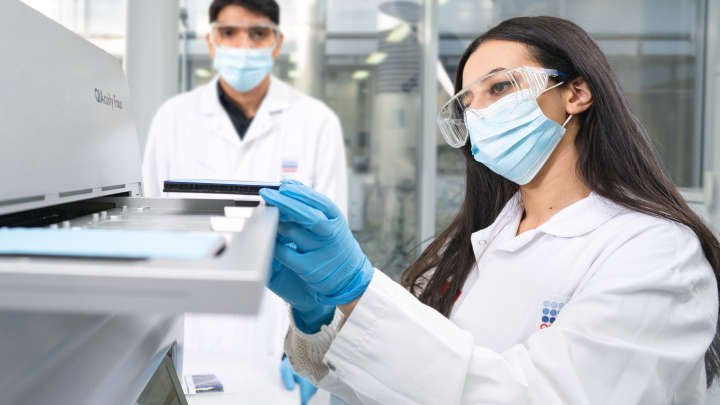
German firm Qiagen has announced the launch of its new digital PCR (dPCR) Custom Assay Design Tool for copy number variation (CNV) analysis for use on its digital PCR platform QIAcuity and several other enhancements in its GeneGlobe Design and Analysis Hub, a comprehensive research platform that integrates pre-designed assays with a database of more than 10,000 biological entities including genes, miRNAs, and pathways.
The new advancements aim to support customers with a wide range of assay customisation options, from simple to complex and validated multiplex assays, while further improving the user experience.
Genetic research is moving fast, and new target genes are rapidly evolving that are not covered by standard or pre-designed assays. To keep pace and close the need gap, the new digital PCR Custom Assay Design Tool has been developed as an interface on the GeneGlobe platform.
It enables customers to design and order assays for use on Qiagen’s digital PCR platform QIAcuity outside of Qiagen’s comprehensive catalog of over 200 wet-lab validated assays for copy number variations profiling in translational cancer research. Copy number variations (CNVs) are a type of genetic variation where specific segments of the DNA are copied more or fewer times than normal in the genome, potentially affecting susceptibility to diseases and response to treatment.
“As certain copy number variations are associated with cancer, studying them can improve the understanding of how these variations can affect health and the responsiveness to treatments. It is therefore crucial for advancing precision medicine,” explained Nitin Sood, Senior Vice President, Head of the Life Science Business Area at Qiagen. “Our new digital PCR Custom Assay Design Tool in GeneGlobe provides researchers with an innovative and user-friendly tool to design customised assays for QIAcuity tailored to their specific needs, streamlining research and accelerating scientific discovery.”




